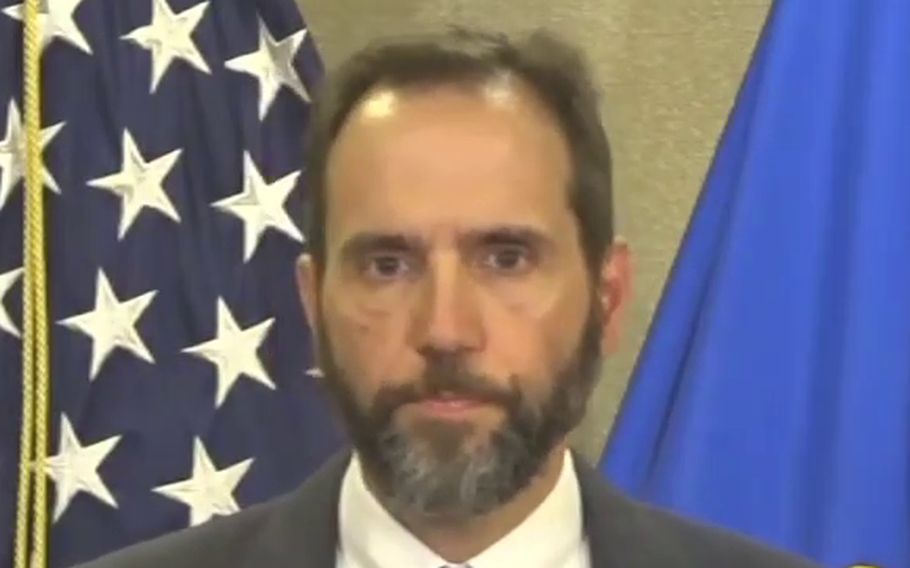
Special counsel Jack Smith said in announcing the indictment Tuesday that “our investigation of other individuals continues,” without providing details. (United States Department of Justice)
The federal indictments against Donald Trump this summer marked watershed moments, but the two parallel investigations by Justice Department special counsel Jack Smith aren't over.
The grand jury in Washington that charged Trump on Tuesday over his efforts to overturn the 2020 election is still active, according to a person familiar with that probe. Multiple witnesses are scheduled to testify in mid-August, and prosecutors are still processing evidence they've received, said the person, who spoke on the condition of anonymity to discuss nonpublic matters.
Special counsel Jack Smith said in announcing the indictment Tuesday that "our investigation of other individuals continues," without providing details.
Justice Department policies prohibit prosecutors from going back to a grand jury solely to get more evidence against a defendant they've already indicted. But they can keep using the grand jury — and its subpoena power — to explore other investigative threads, former prosecutors said.
"If you've got a defendant and you want to supersede, to add additional charges or additional defendants, you can use the grand jury," said Joan Meyer, a former senior Justice Department official. "You can't use it to shore up your case after it's charged."
The Trump indictment in Washington alleges a series of conspiracies by the former president to interfere with the election and refers to — but doesn't name — six co-conspirators. Former federal prosecutors say Smith's team could keep using a grand jury to build cases against those individuals.
In Florida, Smith's office continued gathering evidence after securing an indictment in June charging Trump with mishandling state secrets and obstructing the government's efforts to claw back classified material, according to a second person who had knowledge of at least one witness interview after the charges were announced. On July 27, prosecutors secured a superseding indictment adding more felony charges and a new defendant to the case.
In the documents case, prosecutors from Smith's office had signaled that they weren't finished. After the indictment first came down, they asked the judge to enter an order protecting evidence from being shared with the public because it included information about "ongoing investigations, the disclosure of which could compromise those investigations and identify uncharged individuals."
After the latest Florida indictment, the Justice Department told a judge that certain information related to the August 2022 search of Trump's Mar-a-Lago resort should remain under seal — meaning there was still information about the investigation that the government hadn't shared with the public in the two versions of the indictments.
Defense lawyers can raise concerns with a judge if they believe the government has abused its authority in continuing to use a grand jury after getting an indictment. They get copies of testimony transcripts and can ask to have charges dismissed or sanctions imposed. But Meyer said it's hard to prove misconduct and those motions "are rarely granted."
Trump's lawyers in the documents case have said in court that they're scrutinizing how Smith's office conducted its investigation. Those lines of inquiry include probing the fact that prosecutors put witnesses before a grand jury in Washington for months before securing the indictment from a grand jury in south Florida. They haven't filed any motions related to that issue so far.
Justice Department policies state that a case can't be presented to a grand jury in a particular location unless the offense took place there. Trump is charged with unlawfully holding on to classified material after he left the White House in January 2021 and conspiring with his employees to obstruct the government's efforts to get those documents back. The criminal probe formally began in February 2022, when the National Archives and Records Administration alerted the Justice Department that boxes of documents they retrieved from Trump after months of wrangling included classified information.
The federal criminal investigation into the 2020 presidential election has covered a range of subjects and actors, including efforts by Trump and his allies to contest results in battleground states, to pressure Vice President Mike Pence and state election officials to intervene, and to arrange for so-called alternate pro-Trump electors to sign false certifications.